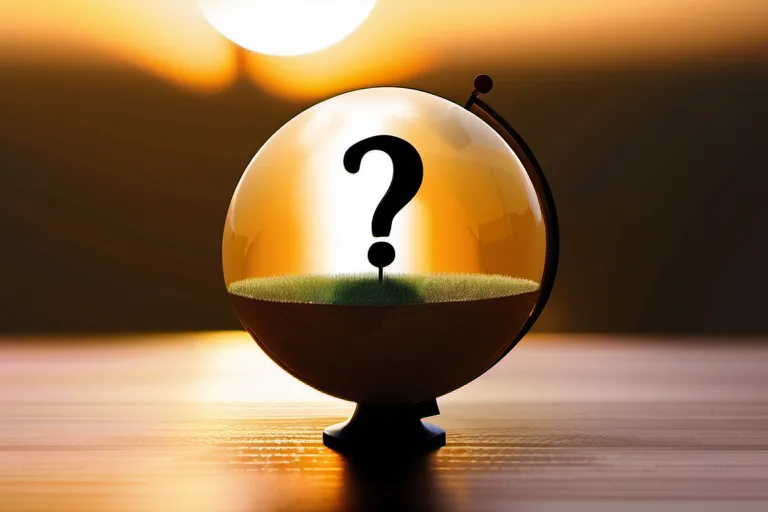Exploring the philosophical and sociological aspects of atheism, its history, and its impact on society.
Atheism is a lack of belief in the existence of God or gods. However, it’s much more than just a denial of a higher power. This article dives deep into the world of atheism, exploring its philosophical underpinnings, its historical context, and its role in society.
The Philosophical Foundations of Atheism
What exactly is atheism, you might wonder? It’s more than just disbelief in gods; it’s a profound philosophical stance that questions and critiques religious claims. But what drives someone to reject belief in divine beings entirely?
Atheism is rooted deeply in philosophy, where the quest for knowledge and understanding of the natural world has often clashed with traditional religious doctrines. Philosophers have long debated the existence of gods, using logic and reason as their tools.
Imagine two paths diverging before you: one leading to a realm of divine beings and miracles, the other embracing a world where nature and science explain reality. Atheism takes the latter path, but how did this journey begin?
In ancient times, thinkers like Democritus in Greece proposed a universe driven by atoms rather than gods, challenging the notion of divine intervention. But why did these early philosophical inquiries turn into the robust and well-defined atheism we see today?
The arguments for atheism are as diverse as they are compelling. Some argue that the concept of a god is logically incoherent or unnecessary, while others point to the lack of empirical evidence supporting religious claims. These debates have been central to the development of Western philosophy, from the likes of Epicurus and Lucretius to contemporary thinkers.
Yet, it’s not just about logical reasoning; atheism also involves a critique of religion’s impact on society. Can belief in gods be reconciled with human rights and ethical standards? Many argue that secular ethics provide a robust framework for moral behavior without the need for divine commandments.
So, as we delve deeper into the philosophical foundations of atheism, we uncover layers of intellectual and societal debate. The question remains: can you live a fulfilling life without faith in gods?
This exploration of atheism is just the beginning. In the next chapter, we’ll trace its historical journey through time, from ancient Greece to the secular societies of today, uncovering how these debates have shaped our world.
The Historical Evolution of Atheism
The journey of atheism through history is like tracing the threads of a complex tapestry, each strand woven by influential figures and pivotal events that have shaped our understanding of non-belief.
Was atheism always seen as a radical idea? In ancient Greece, philosophers like Democritus and Epicurus questioned the existence of gods, proposing a naturalistic worldview. These early thinkers laid the groundwork for future philosophical arguments against divine intervention in human affairs.
The rise of the Roman Empire saw the spread of monotheism through religions like Christianity, which often clashed with polytheistic beliefs. However, even within this religious landscape, some prominent figures challenged traditional faith. Thinkers like Lucian of Samosata, known for his satirical works, mocked gods and religion, challenging their very existence.
The Renaissance brought a renewed interest in humanism and rational thought, with thinkers like Giordano Bruno advocating for a universe filled with countless stars and planets. His ideas were radical for the time, and he faced persecution for his atheistic views, highlighting how societal attitudes towards non-belief can be fiercely opposed.
In the 18th century, the Enlightenment further fueled the spread of atheism. Figures like Voltaire and Denis Diderot used reason to critique religious dogma, contributing to a shift in public opinion. They argued that religion often led to superstition and injustice, fostering an environment where atheistic ideas could gain more traction.
The 19th century saw the emergence of prominent atheist philosophers such as Karl Marx and Friedrich Nietzsche. Marx’s Communist Manifesto critiqued religion for its role in justifying class inequality, while Nietzsche famously declared God dead, challenging traditional moral and ethical frameworks.
Throughout history, atheism has been a catalyst for social change and intellectual exploration. From the early philosophical debates of ancient Greece to the fiery exchanges of modern times, the story of atheism is one of resilience and transformative power. Each era has brought new challenges and opportunities, shaping how non-belief is perceived and practiced.
As we continue our journey through this rich history, it becomes clear that atheism’s evolution is not just a historical narrative but an ongoing conversation about belief and disbelief in the face of an ever-changing world.
Atheism in Contemporary Society
Understanding atheism in contemporary society requires us to delve into its complex role and impact, much like exploring the vast ocean from the shore. How does non-belief shape our worldviews today? Is atheism a beacon of rationality or a mere absence of faith?
Atheism is not monolithic; it varies greatly across different cultures and demographics. In some societies, such as the United States, it’s often seen as a minority stance, while in countries like Sweden, it’s more common to see a majority identifying as non-religious. Why do these differences exist? Are they merely cultural quirks or reflections of deeper societal values?
The landscape of atheism is also influenced by generational shifts. Younger generations are increasingly likely to identify as atheist or agnostic, questioning traditional beliefs in ways that their parents and grandparents might not understand. This raises the question: what drives these changes? Are younger people simply rejecting old ideas, or are they forging new paths?
Societal attitudes towards atheism also vary widely. In some places, non-believers face discrimination and social ostracization, while in others, there’s a growing acceptance of diverse beliefs. How do these differing attitudes impact the lives of atheists? Do they feel more isolated or empowered by their stance?
Moreover, the rise of social media has given atheists platforms to share their experiences and connect with like-minded individuals around the world. This digital revolution in atheism is reshaping how we think about belief and non-belief. Is this a positive development, allowing for greater openness and dialogue? Or could it potentially isolate people further from traditional religious communities?
Atheism’s influence extends beyond personal beliefs into broader societal issues. It plays a role in discussions about ethics, public policy, and even the separation of church and state. How do atheists contribute to these debates? Are their perspectives essential for a balanced discussion on moral and political matters?
The Atheist Movement: Advocacy and Activism
What is atheism? It’s like asking what love is without having experienced it yourself. Atheism isn’t just about believing there’s no god; it’s a complex tapestry woven from philosophical inquiry, personal experience, and social activism. Imagine atheism as a vast ocean where the tides of reason and skepticism rise and fall, pushing back against the shores of tradition and superstition.
Throughout history, movements like Atheist Alliance International have been at the forefront of advocating for free speech and religious freedom. These organizations work tirelessly to promote a world where people can express their beliefs without fear of persecution or prejudice. They believe that by fostering understanding and dialogue between believers and non-believers, they can create a more inclusive society.
Another significant player is Atheist Voice International, which focuses on providing support and resources for atheists, agnostics, and freethinkers. Through their initiatives, these groups help individuals navigate the sometimes hostile waters of societal attitudes towards non-belief. They organize events, publish materials, and engage in public debates to challenge misconceptions and promote a more secular worldview.
But why does this matter? Why should we care about atheist movements advocating for a separation of church and state? Isn’t that just an attempt to undermine religious freedom? The answer lies in the realization that a society where all beliefs are respected but none hold undue power is one that thrives. These movements aren’t about silencing religion, but about ensuring that everyone’s voice is heard equally.
Consider the impact of such movements on education and public policy. When atheist activists push for science to be taught accurately in schools, they’re not just fighting for facts; they’re advocating for a world where knowledge and evidence guide decision-making rather than dogma. This isn’t about atheism winning over religion; it’s about creating an environment where all beliefs are challenged, questioned, and ultimately respected.
Challenges Faced by Atheists
Atheists often face a complex array of challenges that can be both social and personal. Have you ever pondered how challenging it might feel to stand alone in your beliefs, especially when surrounded by those who hold strong religious convictions? Imagine walking into a room where everyone believes in a higher power, yet you find yourself questioning everything. This is the reality for many atheists.
One of the most significant challenges faced by atheists is discrimination. Is it fair to face prejudice simply because you don’t believe in a deity? Can you truly feel equal in societies that privilege religious beliefs? The struggle for acceptance and recognition can be daunting, making the journey of non-belief even more isolating.
Moreover, stigma often accompanies atheism. How do you navigate through a society where your lack of belief might be seen as a flaw or even a personal failure? The pressure to conform can be immense, leading many to keep their beliefs private and hidden from others. This secrecy can take a toll on one’s mental health and overall well-being.
The search for community is another critical challenge. For atheists, finding a sense of belonging among those who share similar values and experiences can be difficult. How do you connect with people who understand the nuances of your non-belief? The absence of a supportive network can leave individuals feeling isolated and without the emotional support that comes from shared beliefs.
Politically, atheists often find themselves in a tug-of-war between advocating for their rights and avoiding the backlash that might come with vocal opposition. How do you balance activism with personal safety and the fear of judgment? The push and pull can create internal conflicts that make it hard to fully embrace your non-belief without worrying about societal repercussions.
Despite these challenges, many atheists find strength in unity and resilience. They build communities through online forums, local groups, and activist movements, proving that even without a deity, one can find purpose and belonging. The journey of an atheist is not just about denying the existence of a higher power; it’s also about finding ways to thrive and connect with others who share similar values.
The Future of Atheism: Trends and Predictions
What does the future hold for atheism? As we step into a world increasingly shaped by technology and social media, one wonders how these forces will mold the landscape of non-belief. Will atheism continue to grow in prominence, or will it face new challenges that could alter its trajectory? The rise of the internet and smartphones has transformed communication, making it easier for individuals to connect with like-minded people across the globe. Could this digital revolution serve as a powerful tool for spreading atheistic ideas and fostering communities where freethinkers can thrive?
Already, we see glimpses of how social media platforms are reshaping beliefs. Atheists from all walks of life have found spaces to share their stories, challenge dogma, and support one another in ways that were unimaginable just a decade ago. But with every advancement comes new risks. How will the algorithms of these powerful tools influence the spread of ideas? Will they prioritize content that aligns with dominant ideologies or allow for open discourse?
Moreover, global events play an undeniable role in shaping personal beliefs and societal norms. In times of crisis or uncertainty, people often seek solace in religion or spirituality. Conversely, periods of peace and prosperity might encourage a more critical examination of faith. How will the next major world event—be it a pandemic, economic downturn, or social revolution—affect atheism? Will these moments push more individuals towards questioning their beliefs, or will they solidify people’s commitment to traditional values?
The future of atheism is not just about numbers but also about the evolving nature of belief itself. As societies become more diverse and globalized, will there be a new understanding of non-belief that transcends borders? Or might we see fragmentation as different groups within the broader atheist community find their own unique identities?
One thing is certain: the road ahead for atheism will be complex and multifaceted. It will involve navigating technological advancements, grappling with global events, and embracing the ever-changing nature of human belief systems. As we look to the future, it’s crucial that atheists remain open to new ideas and challenges, ready to adapt and evolve just as technology continues to transform our world.
Conclusion
 By the end of this article, you will have a better understanding of what atheism is, why people choose not to believe, and the challenges faced by atheists in today’s world. You may also gain insights into your own beliefs or open your mind to new perspectives.
By the end of this article, you will have a better understanding of what atheism is, why people choose not to believe, and the challenges faced by atheists in today’s world. You may also gain insights into your own beliefs or open your mind to new perspectives.











